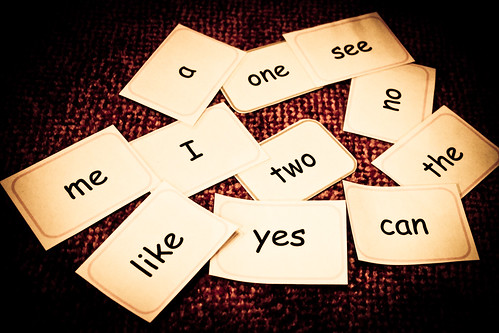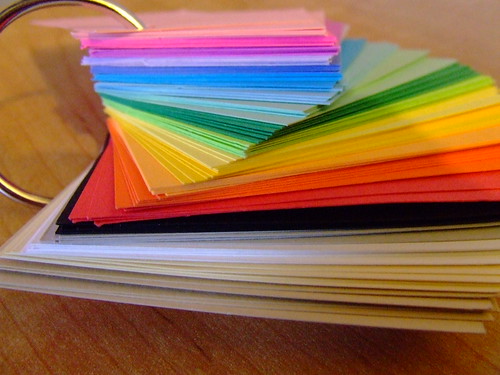Learning Vocabulary Tips
I got a letter from Simon, a reader of this blog, who says:
" My biggest problem is my small vocabulary. [...] Do you have any tips for me to improve my English faster?"
So I thought it was about time we revisited the topic of vocabulary learning.
Before I give you a list of recipes, please remember that whichever techniques you choose, it's important that you keep at them. Vocabulary learning -just as most of language learning- is like gym. Think training. Think how you'd prepare yourself if your objective was to grow muscles or be physically fit and you'll be on the right track. So, no magic or quick fixes here.
Let's see.

There is, above all, a memoristic aspect to vocabulary learning. That's the glue that makes you retrive the word if you mean to add it to the words you normally use. So, if you choose some of the memory training techniques below, try to make a list of words which are highly frequent in your everyday English. Why? Because you'll be likely to need the word when you speak, therefore, you'll go beyond the memoristic game to real learning in a meaningful context.
So outside context, you may create:
- Word lists
- Post-it notes on your desk
- Flashcards
Then, you may want to add some sort of context to the words by adding associations. Here you may do;
- Related words
- Synonyms
- Antonyms
ReadingQuest.org gives you a template (pdf) like this to work on.

Synonyms are a great way to learn words. You never know which one sticks to your mind first, but, at least, by giving your brain choices you create other association possibilities that may spell success.
However, this is a word of warning, our brains are not that prepared to learn antonyms when both words in the pair are new to you. Trying to learn "tall/short" at the same time is not a good idea. Try it with a list yourself. You'll probably doubt which is which for a long time. Many students confuse words like "before&after" even in advanced levels.
Next, you may try to group words linked to a topic context:
- Parts of a bicycle (Make your own)
- Objects in your bedroom
- Brainstorming a topic. Which words come to your mind when you think "fashion"?
Onother helpful hint to learn words is to vary the senses you use to learn them.
- Go from the photo to the words
- Listen to songs and find the lyrics
- Write them, feel them. Don't be ashamed to try a poem with a set of words! Play games.
From any text you read online, you may create a word cloud to help you retell it by using the image only. You may just drop words and use them as a story prompt, if you feel more creative. What story would you make with these?


One last word, you'll find sharing and teaching the words a powerful source of learning. So go ahead and teach someone what you now know. Remember the muscle training principle applies to words: use them or lose them!

Related Post
Phrasal Verbs
Footnote
Some research on vocabulary learning
Labels: vocabulary

0 Comments:
Post a Comment
Subscribe to Post Comments [Atom]
<< Home